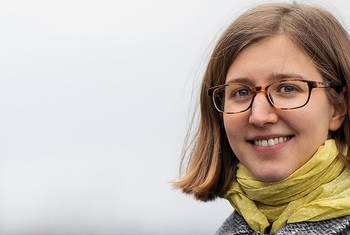Hannah Illing Is the Impact of Job Loss Equal for Men and Women?
Hannah Illing is a postdoctoral researcher in Economics at the University of Bonn. She is also a research associate at the Institute for Employment Research (IAB) and a visiting research affiliate at the Institute of Labor Economics (IZA). Illing completed her PhD within the joint graduate program of the IAB and the University of Erlangen-Nuremberg, where she specialized in applied microeconomics. The focus of her research is economics of gender and migration.
Area of Research
Applied Economics
since 2021
Postdoctoral Researcher
University of Bonn (Rheinische Friedrich-Wilhelms-Universität Bonn) (more details)
since 2021
Visiting Research Affiliate
Institute of Labor Economics (IZA)
since 2021
Research Associate
IAB Graduate Program & University of Bamberg
2017-2021
PhD
Universität Bamberg
Thesis title: "The Impact of Economic Shocks on Workers' Labor Market Outcomes" (summa cum laude)
2019
Visiting PhD Student
Boston University
2014-2017
M.A. International Economics and Business
University of Passau (Universität Passau)
2016
Visiting Student
CERGE-EI, Prague
2010-2013
B.Sc. European Economic Studies
University of Bamberg (Otto-Friedrich-Universität Bamberg)
Fellowships
- Doctoral Scholarship by the IAB and the University of Erlangen-Nuremberg (GradAB) (2017 - 2021)
- Funding by Alfried Krupp von Bohlen und Halbach- Stiftung for study year in Prague (2015 - 2016)
 © University of Bonn
© University of Bonn

University of Bonn (Rheinische Friedrich-Wilhelms-Universität Bonn)
Bonn is one of the large universities in Germany, with around 36,000 students, 550 professors, 6,500 other staff staff. It offers a wide disciplinary spectrum comprising some 200 different degree programmes, from Agricultural Science to Tibetan Studies. This diversity is what characterizes Bonn as a full-range university with a strong international orientation. In many international university rankings Bonn is placed among the 100 best universities in the world.Its academic and research profile features internationally renowned specializations in the fields of Mathematics, Physics/Astronomy, Economics, Chemistry, Pharma Research, Biosciences, Genetic Medicine, Neurosciences and Philosophy/Ethics. Other disciplines, such as Geography and Law, are of outstanding importance within the German research scene.
The Rheinische Friedrich-Wilhelms-Universität Bonn is rooted in a long tradition going back almost 200 years. It was founded in 1818 by Friedrich-Wilhelm III, the Prussian king whose name it bears. Imbued with the spirit of Wilhelm von Humboldt, the university quickly joined the circle of Germany's most distinguished universities and became a major pole of attraction for leading scholars as well as students.The list of famous professors ranges from the astronomer Friedrich Wilhelm Argelander (1799-1875), through the chemist August Kekulé von Stradonitz (1829–1896) and political economist Josef Schumpeter (1883–1950) to the philologist Ernst Robert Curtius (1886–1956) and the theologists Karl Barth (1886–1968) and Joseph Ratzinger (born 1927), now Pope Benedict XVI. Bonn's best-known students include Heinrich Heine, Karl Marx, Friedrich Nietzsche, and Konrad Adenauer.
The university is proud of a long list of award-winning scientists and scholars, with about twenty Leibniz Prize winners and around thirty ERC grantees. In the last three decades two professors have received the Nobel Prize: Wolfgang Paul (for Physics, 1989) and Reinhard Selten (for Economics, 1994). (Source: University of Bonn)
Institute
The Collaborative Research Center (CRC) TR 224 – EPoS
The Collaborative Research Center (CRC) TR 224 – EPoS is a cooperation between the University of Bonn and the University of Mannheim. Funded by the German Research Foundation (DFG), it aims to analyze and provide policy proposals that address three key societal challenges: how to promote equality of opportunity; how to regulate markets in light of the internationalization and digitalization of economic activity; and how to safeguard the stability of the financial system.
Map
What costs are involved when a worker loses their job? In this video, Hannah Illing compares the costs of losing a job for men and women. Forming statistical pairs to undertake a valid comparison, Illing’s research shows that women bear substantially higher costs than men when they lose a job and this can be exacerbated by their having children. Illing also ponders how Covid-19 might also have an impact in this regard, an interesting avenue for future research.
LT Video Publication DOI: https://doi.org/10.21036/LTPUB101020
The Gender Gap in Earnings Losses After Job Displacement
- Hannah Illing, Johannes F. Schmieder and Simon Trenkle
- Published in 2021









